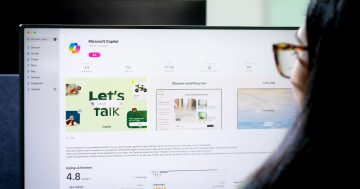Dave Zielinski* says a new global study has found a majority of employees believe AI or bots could perform certain tasks better than their managers.
 Managers can’t compete with artificial intelligence (AI) when it comes to some areas of decision-making and trust building, according to a broad new global study of workers.
Managers can’t compete with artificial intelligence (AI) when it comes to some areas of decision-making and trust building, according to a broad new global study of workers.
But rather than be viewed as an indictment of managers, the study findings can help organisations create a more human workplace, some experts say.
The study by Oracle and Future Workplace, an HR advisory and research firm in New York City, found that the growing use of AI is having a significant impact on the way employees interact with their managers.
Among the study’s key findings is that 64 per cent of respondents would trust a robot more than their direct manager, and 82 per cent believed AI or bots could perform certain tasks better than their managers.
The study surveyed 8,370 HR leaders, managers and employees across 10 countries.
Assessing relative strengths
When asked where AI holds advantages over their managers, respondents said the technology is better at providing unbiased information, maintaining work schedules, problem-solving and managing a budget.
But all was not lost for managers.
Respondents said the top three things managers can do better than robots are understand their feelings, provide performance coaching and create a positive work culture.
“I think one of the bigger themes from the study is that smart use of technology can actually bring humanity back to work,” said Emily He, Senior Vice President in Human Capital Management at Oracle.
“The study found that workers perceive AI and bots to be better at certain things than humans, but that employees also would prefer their managers to apply technology where it makes sense so they can spend more time on things like showing empathy or providing personalised coaching.”
Designing managerial jobs so that AI can take over repetitive or analytical tasks gives managers more time to focus on tasks in which their humanity can have a big impact, He said, such as listening to employees and providing more feedback or support.
The study’s findings have implications for how employers design leadership development programs, she said.
“In cultivating future leaders, organisations should put more emphasis on helping managers become better coaches, communicators and providers of constructive feedback,” He said.
“As the use of AI continues to grow, it’s safe to say soft skills will be more in demand in the future.”
Shifting attitudes toward AI
The study also found that AI use is becoming more prominent, as 50 per cent of respondents reported using some form of the technology at work, compared with the 32 per cent who reported using AI in last year’s study.
“One of the more interesting findings in this year’s study versus last year’s is we saw respondents move from having concerns about AI replacing their jobs to being more enthused about the technology,” He said.
“Respondents used more positive words in general to describe their feelings around AI and how it can improve their work in pragmatic ways.”
But many in the study said they wanted a more simplified experience with AI at work, with respondents asking for an improved user interface (34 per cent requested that improvement), best practice training (30 per cent), and experiences that are personalised to their behaviour (30 per cent).
Security and privacy were listed as the top two concerns preventing workers from using AI at work.
Automation impacts manager roles
Other research has found that automation is having an increased impact on how managers perform their jobs.
A recent study by research and advisory firm Gartner found that 69 per cent of the duties managers currently perform will be automated by 2024.
Sari Wilde, a Managing Vice President at Gartner and author of the new book The Connector Manager: Why Some Leaders Build Exceptional Talent and Others Don’t, said making wise use of modern technology can give managers more time to do what humans do best: listening to, counselling and guiding their team members.
“Applying AI or other automation can free up managers to work on building trust, so employees feel more comfortable talking about their needs, ensuring that all team members feel their voices are heard and helping to guide people’s development,” Wilde said.
“That kind of empathy and personal judgement will always be difficult to replicate with automation.”
In a global study of 9,000 people, Wilde found that “connector managers” consistently outperform in building high-performing work teams.
Connector managers set themselves apart in how they make three types of connections, Wilde said:
Employee connections or one-on-one connections with team members that are characterised by asking good questions and diagnosing employee needs.
“In large part, this is about acknowledging that employees are motivated by very different factors,” she said.
Team connections or creating a work environment that is transparent and open and promotes peer-to-peer skill sharing.
“Connector managers identify individual differences on teams and embrace them,” Wilde said.
“They tend to build more inclusive team environments than other manager types.”
Organisation connections or connecting team members to others in the organisation who can help them build important skills and acquire knowledge or guide their career development.
“Connector managers give targeted coaching and feedback to their teams in areas where [they have] expertise but will connect them to other experts in the organisation in areas where … they aren’t as strong,” she said.
* Dave Zielinski is a freelance business writer and editor.
This article first appeared at www.shrm.org











